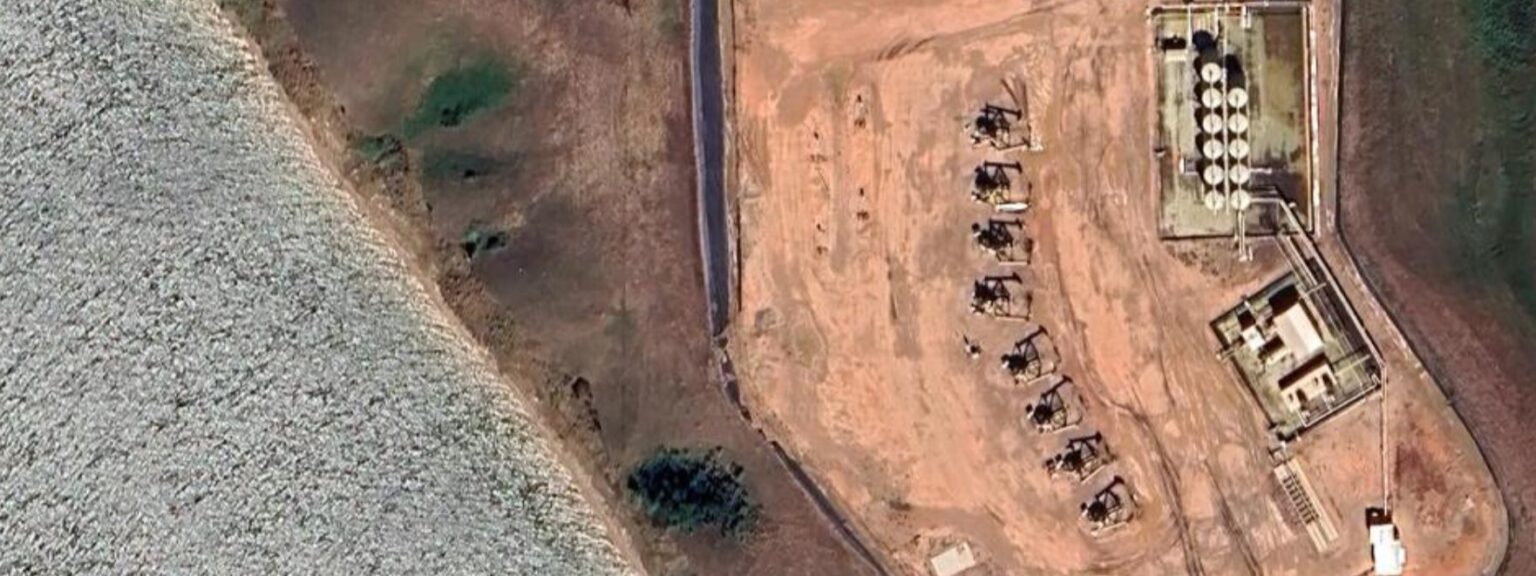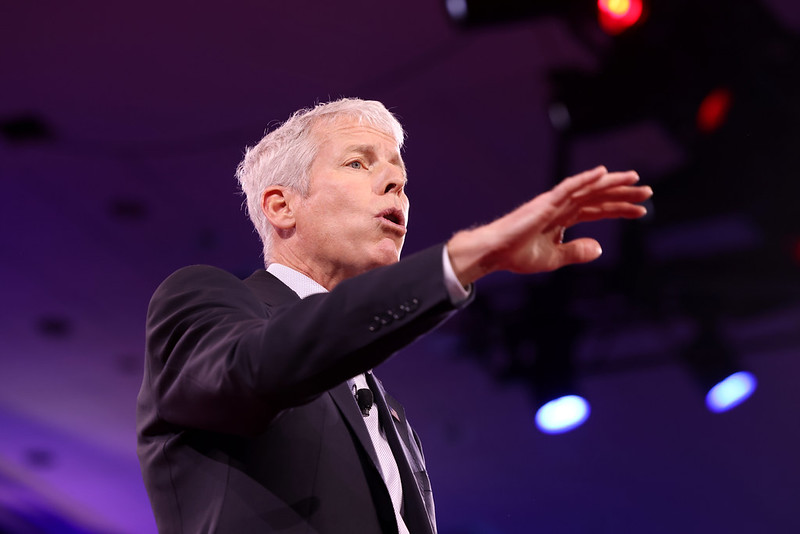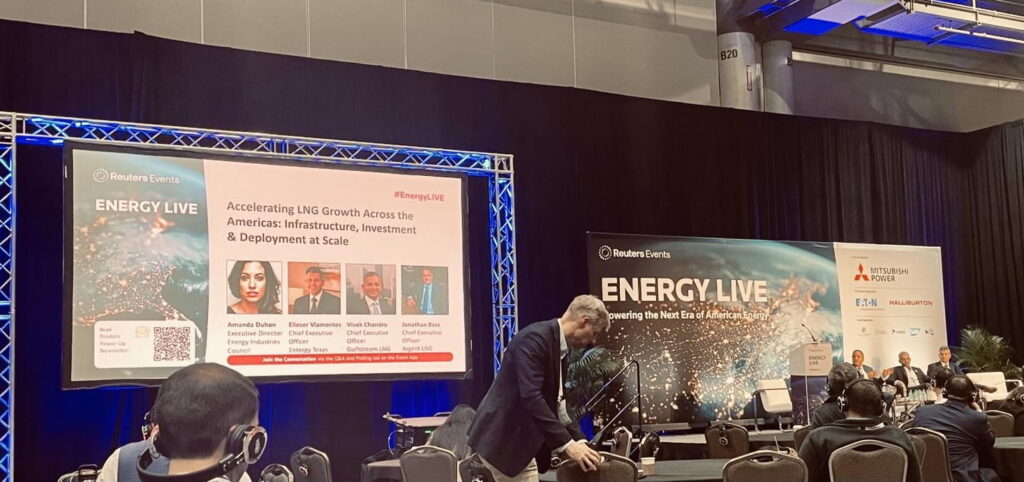Last week, the Bureau of Land Management (BLM) announced the results of its most recent oil and gas sale on public lands in North Dakota and Montana. The majority of the proceeds for this round come from a $15.1 million winning bid for a 273-acre parcel located entirely underneath the Missouri River, which serves as a major source of drinking water for millions of Americans.
That relatively small lease is a big reminder of the ways shale extraction continues in and around places where people get their drinking water. The sale was made amid continuing battles over just how much public land will be made available to oil and gas drillers, and how much protection will be extended for public lands.
Last week, BLM also proposed limiting oil and gas leasing on federal lands in North Dakota — particularly in and around areas where people get their drinking water.
Subscribe to our newsletter
Stay up to date with DeSmog news and alerts
BLM said it was updating North Dakota rules crafted in 1988 “to better balance energy and mineral development while supporting outdoor recreation, cultural resources, and sustaining healthy habitat for priority plant, wildlife, and fish species” across millions of acres in North Dakota.
The proposal, which drew 535 public comments, appears to carry some significant loopholes.
BLM’s plan would put the eastern half of North Dakota — where there’s no oil and gas activity and no reason to expect there will be — off limits for oil leasing on public lands, and limit coal leasing on public lands in the state.
There’s a big caveat, however: Even today’s “low development potential” areas could wind up available for leasing if places drillers don’t want to lease now wind up becoming commercially attractive someday in the future because of new technology or future oil discoveries.
That clause was added “in response to the state’s concerns” over not allowing some public mineral rights to be leased, BLM spokesperson Mark Jacobsen said in an email. North Dakota previously sued BLM to force leasing to resume, citing lost revenues from canceled auctions.
BLM’s proposal would also leave public lands where there are active oil and gas fields, plus a five-mile zone around those active areas, available to lease in North Dakota.
The proposed rules would also make a total area of a little over three square miles (2,000 acres) of “drinking water source protection” areas off limits for future oil and gas leasing, a BLM spokesperson told DeSmog in an email, with the state determining what areas are considered protected.
The narrowed proposal nonetheless drew immediate fire from the oil industry’s supporters. North Dakota’s Republican Senator John Hoeven slammed BLM’s proposal as “heavy-handed” in a statement last week. “We will continue to fight this and all of the overreaching policies being imposed by the Biden-Harris administration,” Sen. Hoeven wrote.
Hoeven’s stance might come as little surprise. His biggest donors, after “Leadership PACs” run by other public officials, are the oil and gas industry, according to OpenSecrets. Hess Corp., one of the active drillers in North Dakota’s Bakken shale, was Hoeven’s third-largest contributor from 2019 to 2024, OpenSecrets notes. Next is asset manager Blackstone Group, which is heavily invested in Energy Transfer (the company behind the Dakota Access Pipeline, commonly known as DAPL), and other fossil fuel companies highly active in the Bakken shale. (Oil giant Chevron is currently seeking to buy Hess, though that $59.9 billion deal has been repeatedly delayed.)
The Bureau had paused oil and gas leasing on public lands in 2021 and part of 2022 under a Biden executive order. But the state of North Dakota sued over that pause, and last year, a federal judge in North Dakota ordered BLM to temporarily resume leasing public lands in the state, over the objections of the Department of the Interior and several environmental groups. Litigation in that case remains ongoing.
A 30-day “protest period” for the BLM’s proposed new rules began August 9, the agency noted as it made its announcement.
Drilling Below the Missouri
The 273-acre parcel that drew a $15.1 million bid by Pride Energy Co. last week is located directly below the Missouri River. The auction was for a 50 percent interest in that parcel, operated by shale billionaire Harold Hamm’s Continental Resources (NYSE:CLR). BLM’s spokesperson noted that the above-ground well pads can sometimes be quite far away from where a shale well extends.
“With the advent of directional drilling, operators can reach small parcels from considerable distances. I’ve heard of instances of wells going about two miles down before drilling two miles horizontally to reach a deposit,” BLM spokesperson Jacobsen told DeSmog. “Bottom line: Each well pad’s circumstances are site specific.”
The Missouri River is already densely crisscrossed with horizontal oil and gas wellbores deep below ground, with wells in the area largely operated by Continental Resources and Bakken specialist Chord Energy (NASDAQ: CHRD).
But though drillers have the ability to drill oil wells from well pads miles away, well pads can be seen strikingly close to the Missouri’s banks. Silhouettes of pump jacks are visible just a few hundred feet from the waters of the Missouri River in satellite imagery just to the south of the oil lease.
All of the activities on land that surround drilling and fracking can pose serious risks to the river. A few years back, for example, pipeline company Summit Midstream pled guilty to criminal charges after the company spilled over 29 million gallons of oil-contaminated wastewater into tributaries of the Missouri River, and misled government officials about how serious the spill was, according to the Department of Justice, which labeled the incident the “largest ever inland oil spill.”
Millions of Americans draw their drinking water from the Missouri River or waters fed by it.
Although the newly proposed rules promise to put state-designated drinking water source protection areas off limits, they seem unlikely to prevent more leasing under the Missouri. That’s in part because the Bureau oversees oil and gas leasing on 700 million acres of public lands — but it shares responsibilities with other federal agencies for over half of that land. BLM’s proposed rules wouldn’t affect decisions by those agencies. Jacobsen pointed to the Army Corps of Engineers’ oversight of Lake Sakakawea (created by damming the Missouri River), for example, in response to questions from DeSmog.
Environmental groups have long opposed leasing public land in the region to oil, gas, and coal companies — and faulted the BLM for being too permissive. “I’m disappointed in BLM’s decision to resume leasing following the pause called for by President Biden,” Linda Weiss, board member of Dakota Resource Council and the Western Organization of Resource Councils, said last year, as both groups joined legal challenges to leasing public lands, adding that it “reflects the agency’s long history of preferential treatment for the industry at the expense of people and the environment.”
Subscribe to our newsletter
Stay up to date with DeSmog news and alerts






